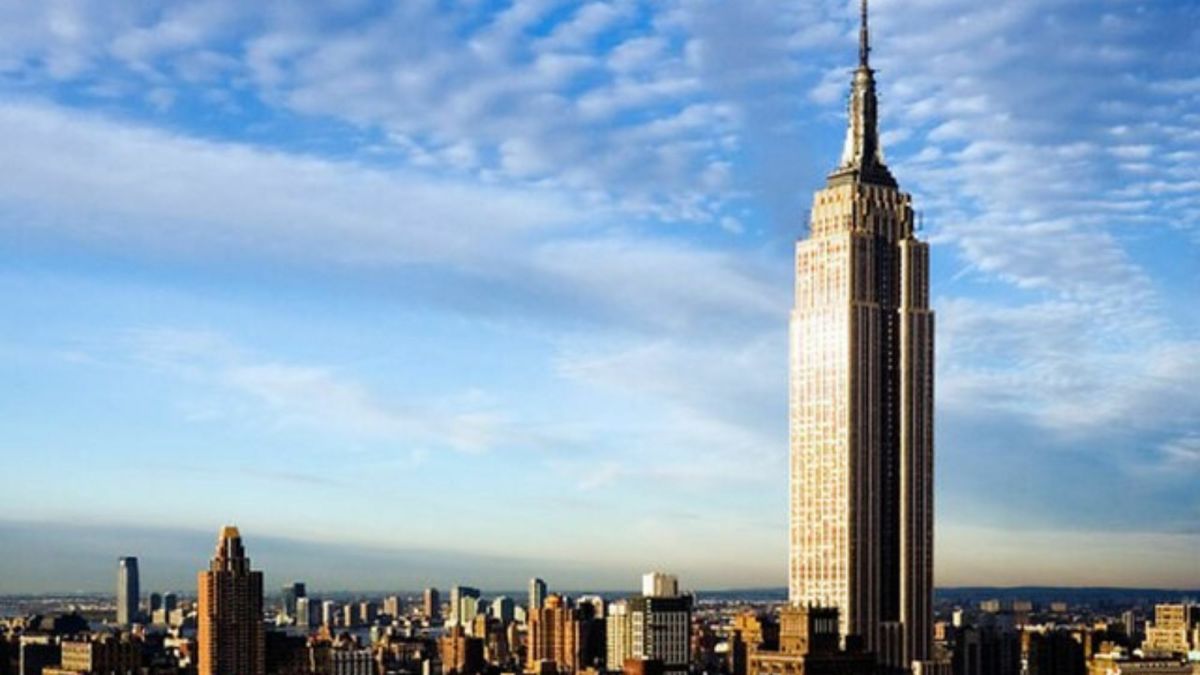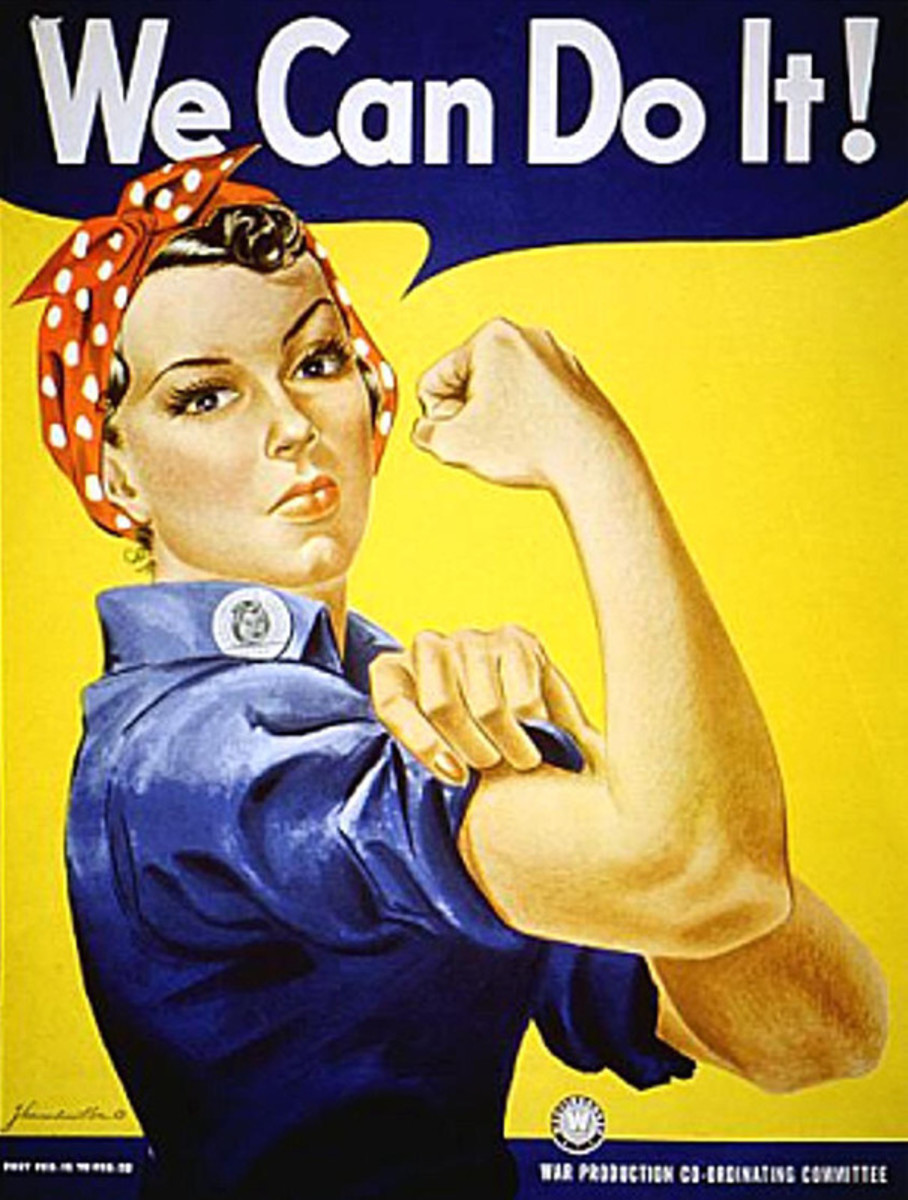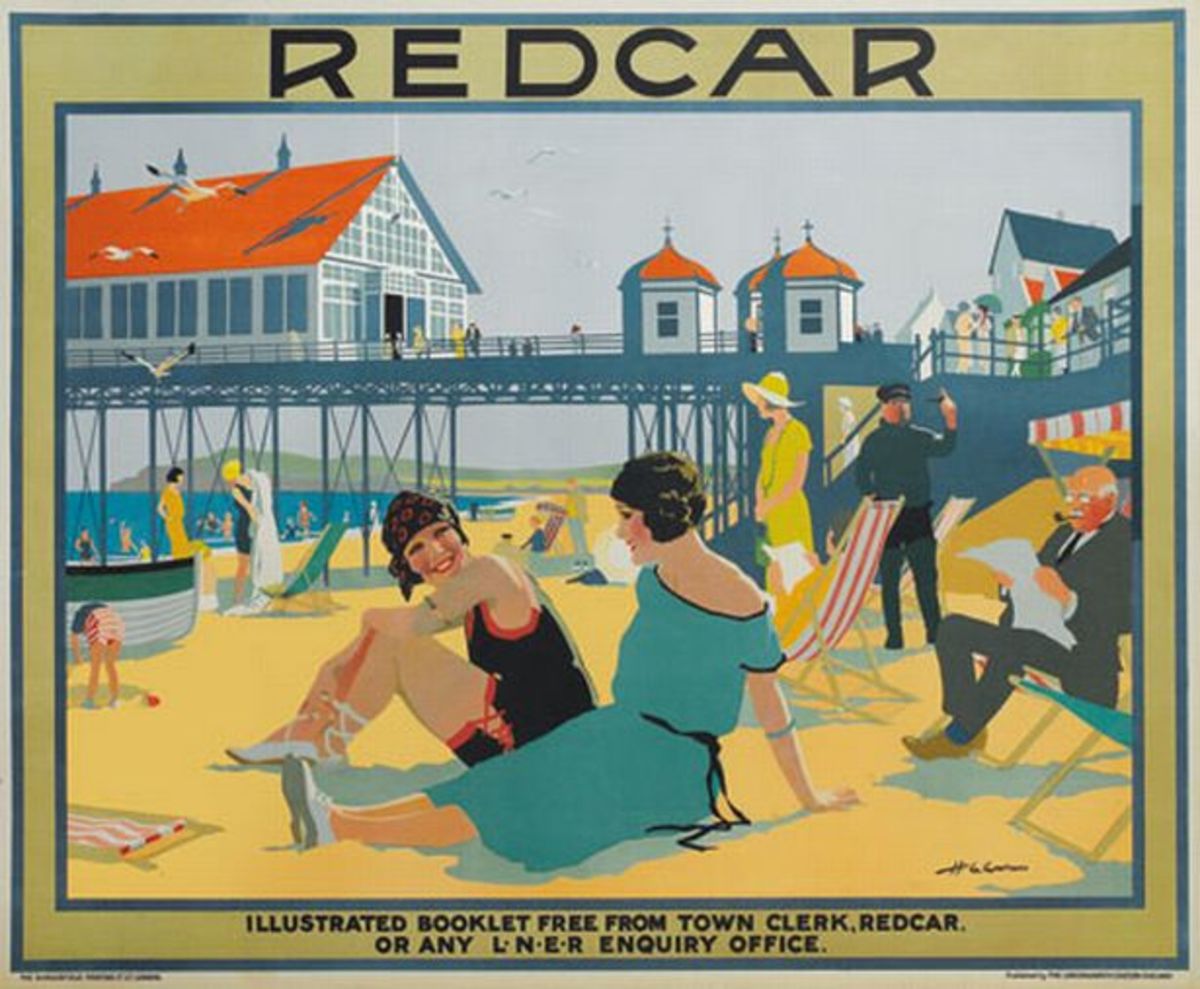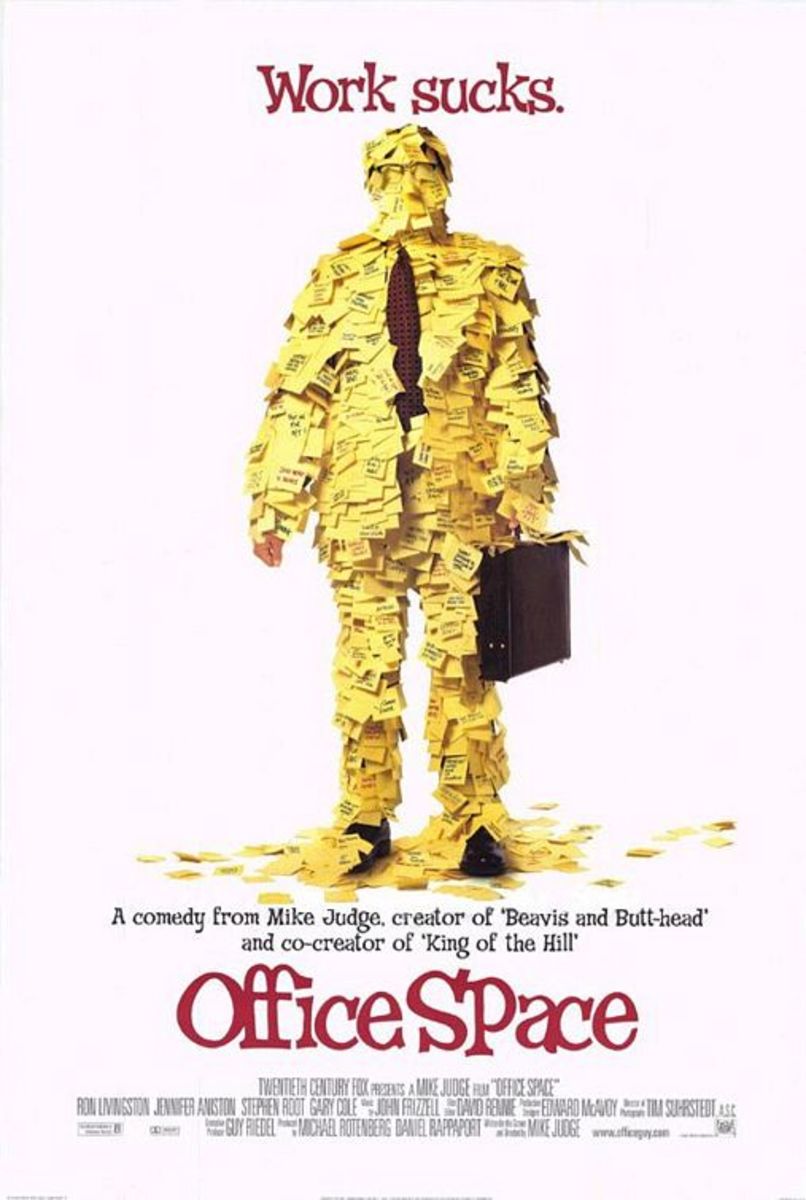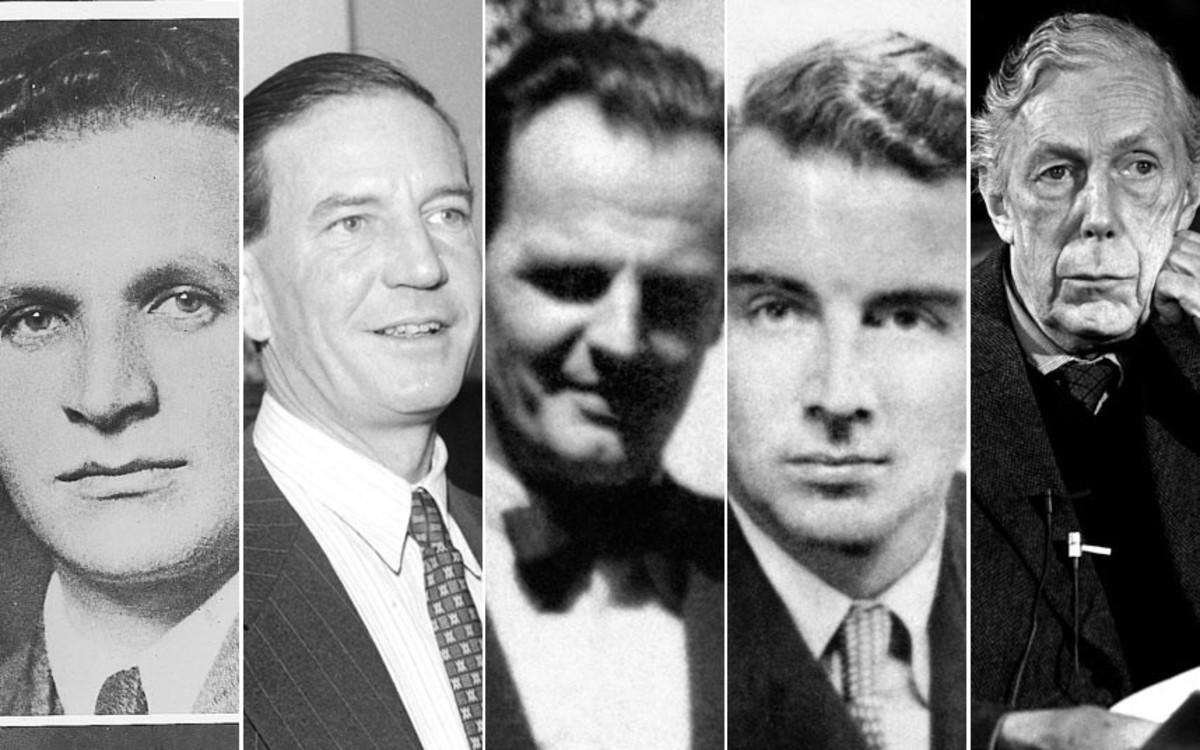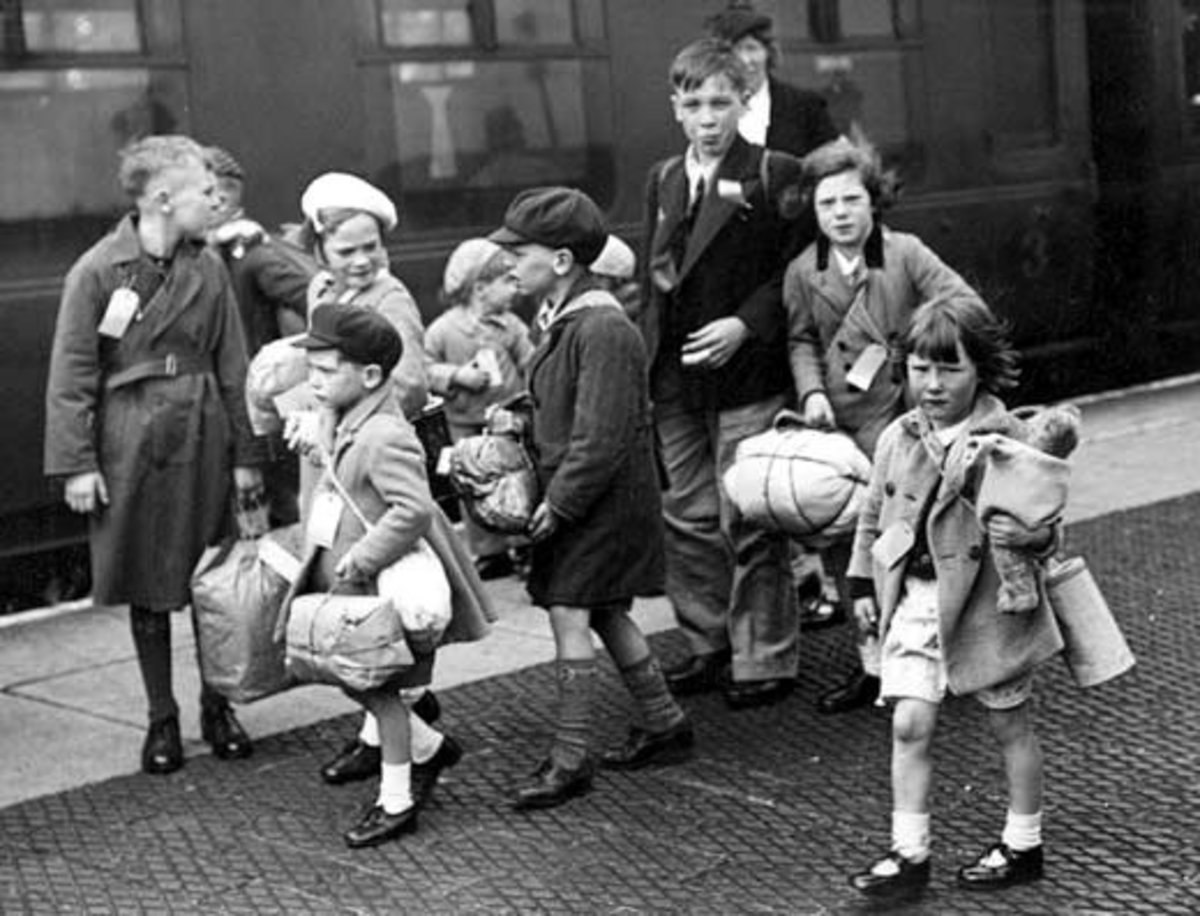Storyline - 4: In (and out of) Print: Management Lockouts, Bacon 'Butties', Bomb Alerts and a Touch of 'Brollywood'*
It's the papers, but not as we knew them...
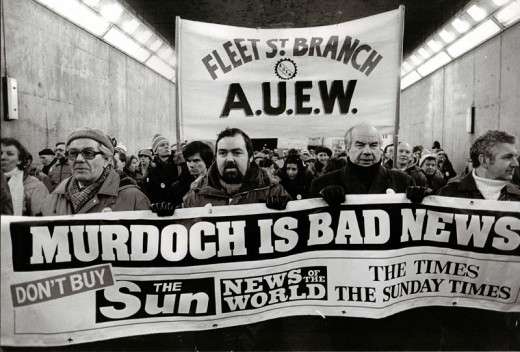
At 'The Square' we had a card school.
That was at 'The Times' on Printing House Square, across Queen Victoria Street from Blackfriars Station (District and Circle Line as well as over the bridge by British Rail to the Kent coast). 'The Observer' shared our presses at the back of the building, away from the street.
The manager usually sat giving us what he thought was a stern, uncompromising stare, but in reality he just looked bored out of his skull, grey-faced during the morning break, trying not to look at his curly 'British Rail'-style sandwiches. Alternatively he might have been constipated from sitting on a succession of train seats, management chairs and the squeaky one he sat on in the office.
Meanwhile we slurped tea brought in a giant urn on an antiquated, squeaky wooden trolley, wheeled into every office by a smartly attired, pinafore-wearing tea-lady who usually looked pretty bored as she turned the tea urn tap and slopped the milk into our cups. For our part we carelessly dropped crumbs onto the lino floor from our crusty cheese or bacon butties whilst we turned over our hands (pontoon) to see what we had that might earn a few extra matchsticks (hardened gamblers that we were!) There was a chess school in the background that the boss viewed more favourably, but one of the lads couldn't take losing in either so he annoyed everyone with his whining. When the break was over Jeremy went back to his work - if you can call hurtling around, dropping letters onto managers' desks work - and we to ours. He was a messenger and we 'processed' the incoming cash from advertisers.
That was no laugh at the best of times, pardon the pun. While Jeremy was swanning around - some of us were less polite, and talked about him 'prancing' and 'poncing' around as the situation dictated - we were locked in hard graft. To start off with we had to split the invoices, reams of them, twice! That gave us a top copy that was sent to advertisers, a second copy held on file and a bottom copy we kept in our desks, 'in case of query'. These were for our records and had to be balanced against incoming cheques from undertakers called 'Jolly' and 'De'ath' (no joke!) in the 'Hatches, Matches and Dispatches' (Births, Marriages and Deaths) columns of the main paper, or education authorities in the Ed. Supp, or publishers in the Lit. Supp. There were the weekend education and literary supplements, colour supplements on Sunday and all manner of loose inserts that had to be accounted for in the invoicing. A proper headache for the Credit controllers, Eddie and Martin, was private advertisers pleading on the phone or in scribbled notes, asking for time to pay beyond the usual fourteen days! They had 'the power' over life and death, so to speak. 'Sorry', being said in such a way as to bring tears of laughter. Agencies like JWT and Ogilvy & Mather had thirty days to 'cough up', but their credit was good anyway. Smaller advertising agencies - they kept splitting like amoeba on a laboratory slide - and joining.in new partnerships to challenge the big boys
Then there was 'Little Birdy' who sat next to me on the next desk. He had a beak, not a nose, a pair of glittering little eyes and a physique that reminded me of a character perched on top of Snoopy's kennel in the Shulz cartoons. Whilst he worked on separating the invoices his left leg bounced up and down as if he were working a sewing machine treadle! I had another character who sat across from me, a proper 'wide boy' who wore tinted glasses and had an expensive-looking hair-style. Ask him a question and he'd come back with 'I don't know, what...' (repeating your question). You'd tell him you were asking because you needed to know the answer - connected or not with the work you were all 'progressing' - and he'd come back with 'Well if you didn't know the answer, why did you ask the question - how would you know if I wasn't pulling a fast one?' End of question and answer session. Clever Dick, I'm surprised he showed up for work every day without a black eye from someone who didn't have to put up with him.
Halfway through the day we'd have a bomb warning, a message from the 'Provos' over the phone to the bosses to clear the building. We'd all troop out to the back of the building where the paper reel deliveries came in for The Observer next door, and wait for the Bomb Squad - or whatever. I thought it was a spoof, where some Guinness-guzzling member of staff wasn't keen on coming back before the weekend as most of the warnings came on Friday afternoons, someone trying to celebrate Poets' day a bit earlier. Poets Day stood for 'p**s off early, tomorrow's Saturday'. I don't think they celebrate it in the print these days. Then they'd slope off for a drop of the hard stuff while we waited for the Bomb boys. There were enough pubs in the area to 'slope off' to, one behind the offices next to a bomb site (there were still some of them, even in the early 70's, waiting for developers to come along and snap up the sites for offices). Some toff from 'higher up' would come out and tell us the alarm was over and we'd troop back in again, minus the one or two still in the local.
That was when we weren't being 'locked out' due to an industrial tiff. We'd come to the office one morning and the bosses had locked up the whole joint. Between them and the 'IRA', we were lucky if we got the work done! Quick zip through the invoices and it was time to go home again, 'Night-night, see you tomorrow/Monday'.
Card school at 10.30 and 3 in the afternoon, lunch break at one, finish at five and no overtime. It was almost as if the bosses didn't want the work finished. Then the owner, Thomson, gave up the ghost. Well, he didn't die. He was fed up with all the shenanigins, sold up to Rupert Murdoch and went to live on a desert island where nobody'd ever heard of newspapers or TV. For all we cared, that's what he did, but he probably went into business in something less strenuous - like the stock exchange or something like that. And we had a new boss.
He didn't like us. He'd heard stories, saw the make-up of The Times and started shedding workers. Jobs in the print works went flying like skittles in a bowling alley! Meanwhile office jobs carried on as before, more job creation to keep tabs on the tabs that had been previously been kept. The hem-lines kept rising as well when we moved from opposite Blackfriars Station to Grays Inn Road. We had never been in Fleet Street proper, and now we were even further off the beaten track. What was more, the Underground was further away. The buses were full before they came anywhere near us and the pubs were further away as well! From the back of the building we had a grandstand view of another bomb site, with the Royal Mail Mount Pleasant Letter Office beyond. At one end of Phoenix Place - behind the sorting office- was The Apple Tree on the corner of the Mount, and equally far away was another public house, the Pakenham Arms near the corner of Mount Pleasant's van park. On Grays Inn Road towards Kings Cross Station was the Calthorpe Arms Further away yet, in the opposite direction on the crossroads with Theobalds Road was the Yorkshire Grey. Opposite was the back of Grays Inn, the inns of court where barristers had their chambers. We were marooned in a virtual desert by any other description - it was as if we'd been posted to the moon!
One night we learned from the TV news that Uncle Rupert had gone to No.10 [Downing Street] to see the Iron Lady, or 'Maggie of the Handbag'. She'd invited him to dinner to discuss his new business proposals, and we'd learn in no uncertain terms what the 'terms' were by the following morning.
We were out of a job, no less... What?! We'd been asked if we wanted to work in a new, state-of-the-art office at Wapping. Where the Hill-billy Tinkers was that? Even more like a desert down there, it was miles from London Bridge, Blackfriars, Waterloo or Kings Cross stations. There was the Underground of course, they'd said, and Tower Hill was only a mile away. Even worse than Grays Inn Road, and the site even looked like a prison or fortress we nicknamed 'Fortress Wapping'. Nobody wanted to go there, not never, not no-how! So we were going to have to look for a job or start 'Knocking on Number One' (sign on for hand-outs).
We had to do something. The first day we had a meeting on Grays Inn Road the Met was there (Metropolitan Police), watching. We were told by Branch (*NATSOPA London Head Office) that Murdoch was having workers ferried by coach from Southampton - they couldn't get staff from any closer, nobody would touch it, not even the employment agencies - in the evening. The PM had sanctioned it, and it was now law.
The Thames Valley police was there that evening, and so was the Met's 'cavalry', their horses prancing like Jeremy after he'd lost at cards. We were kept at a safe distance when the coaches came in, scared faces looking out, like moons, at us. The coaches sped past and the roar went up,
'Scabs, scabs, scabs!'
And then the cops got mobile, surging to seal the gateway, batons flailing. You've seen it on the news, that's how it was. It was mayhem after that... and the night after, and so on. Murdoch was adamant, we learned. No jobs for the unions, the door was shut. That wasn't strictly true, as the electricians' union had agreed their contracts, signed sealed and delivered. 'Murdoch's Lap Dogs' the other unions called them, and they were thrown out of the TUC for their pains. Still the 'show' went on, nightly cabaret near Tower Hill it was. Print union sympathisers and all sorts turned up, even railwaymen and postal workers. Strictly speaking, they weren't supposed to be there, though. Maggie had come up trumps with something we found out called 'Secondary Picketing', that meant only workers employed at a site could picket their colleagues. That was rich, because we weren't employees - any more.
Somebody got a club together, the Wapping Race Committee** they called it. Nothing to do with racial equality, they were getting together enough cash to buy a nag to take to the 'Derby' or Newmarket. We learned later they'd cornered a trainer willing to forego his fees for half a season until they'd got some prize money together to pay him. Some hope. That's a rich man's game, camel hair coats, bowler hats, binoculars, race-goers' tags, 'Champers' and all that! Still, more power to them if it comes off.
That's the card school gone for a Burton, though!
---------------------------------------------------------------------------------
*There were several unions 'in the print' back then when I worked at Printing House Square (PHS) in the Advert Accounts Department, and later after I left to work at IPC Business Press in EC1, Argus Press near Liverpool Street, EC2 and Telegraph Publications in Fleet Street and on the Isle of Dogs at South Quay and Canary Wharf where computerisation brought 'direct input' by the journalists and new technology put two old-established unions 'out to grass'. The various unions involved machine minders, graphical and associated clerical workers as follows:
National Society of Operators, Printers and Assistants (NATSOPA) who had a clerical branch. I joined this union when I worked in the Ad Department at the Nottingham Post (until 1971 when I moved to London) and found employment a various papers, magazine and book publishing houses such as Butterworths in Kingsway, WC2, and IPC Magazines in Stamford Street, SE1);
Society of Graphic and Allied Trades (SOGAT) who also had a clerical branch. The two unions amalgamated and split again twice during my membership of NATSOPA.
Society of Lithographic Artists, Designers & Engravers (SLADE) part of whose task was reading the copy for typos, spelling mistakes etc. from the 'flongs' (papier mache impressions of the rollers before being cast in lead for the printing stage). They also used to produce artwork for the papers, but latterly advertising copy was bought by advertising agencies and supplied by courier to the production people. Now the journalists and advert production departments type copy straight in there are some serious howlers and lots of furious advertisers (I came across a few at the 'Telegraph', including a couple of misplaced ads where a clever young fellow placed holiday and property ads for County Durham in the 'Irish' holidays and properties because he thought it sounded Irish - needless to say we had to offer free insertions to make up for 'our' error);
When computerisation came in the mid-80s to the newspaper industry several unions joined together, NATSOPA, SOGAT and SLADE under the auspices of a new print union with Brenda Dean as General Secretary (at the time she was married to a member of the 'bosses union', Confederation of British Industry [CBI] - talk about sleeping with the enemy!)
National Union of Journalists (NUJ), writers of sometimes brilliant editorial copy, but on the other hand... Past members include current Foreign Secretary Boris Johnson (he might even still be a member). They think they're the bees knees, but we know differently, and it sometimes shows.
**There's a film starring Bob Hoskins on that theme, called 'OUTSIDE BET' and outside scenes filmed on location. It'll be interesting to see how close they came to the real thing. In the summer of 1971 I did work at The Times on Printing House Square, opposite Blackfriars Station.
The cameraderie was great, but with the parting of the ways I left to work a couple of miles away on Bowling Green Lane in EC1 at IPC Business Press from September, 1971, and got married the first time the month after. Halcyon days! We were still celebrating Poets' day in 1994 when I was 'eased' out of my job at The Telegraph at Canary Wharf, E14 due to Conrad Black's activities. What goes around, comes around. Conrad spent some time 'at the President's Pleasure' before being released not long ago. He'd 'had his hands in the till', so to speak. Forgot he'd floated the company and was siphoning off funds for life's little luxuries. (It just goes to show). Now Rupert Murdoch's in everybody's 'bad books' because of the 'News of the World' caper. What's in store for him, I wonder?
The Saga of Wapping
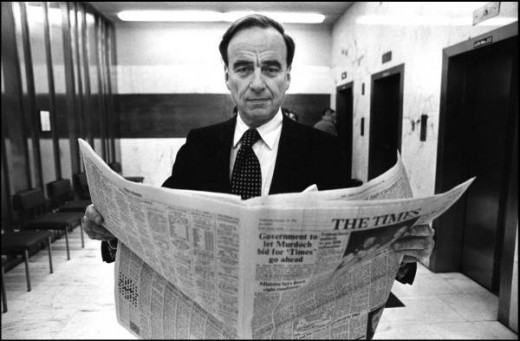
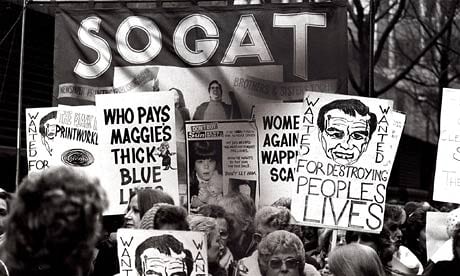
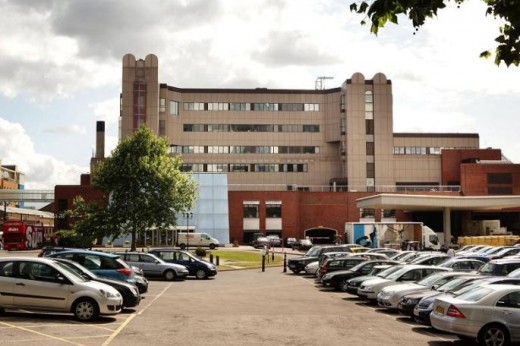
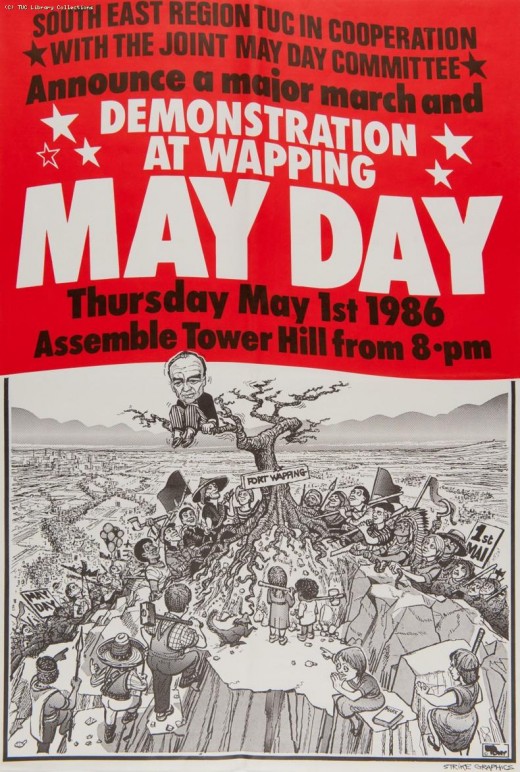
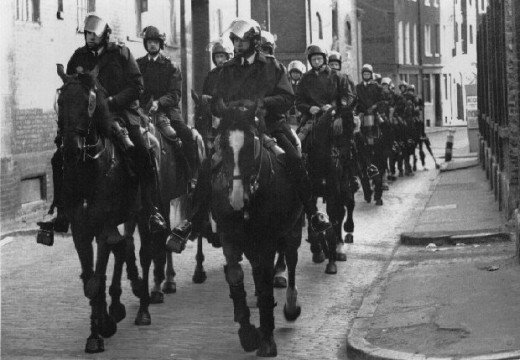
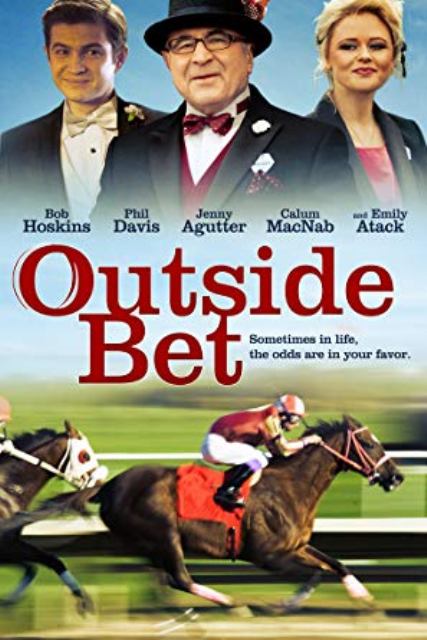
'OUTSIDE BET' is the story of a group of out-of-work newspaper printworkers who invest in a racehorse to get them well into the black (some hope!) That's the storyline of this hilarious feature film starring Bob Hoskins as the 'FOC' (Father of the Chapel = trade unions were forbidden at the time they were founded, so they saw cloaking themselves as religious groups as the best way forward).
Worth a watch, hilarious and sometimes pithy. Bob at his best with Jenny Agutter (remember 'Walkabout'?) and Rita 'Tush' Tushingham supporting.
* That 'Brollywood' in the title is a play on words. A 'brolly' is the colloquial English for umbrella, many London office workers often being depicted in film as carrying them and a furled newspaper. 'Bollywood' is the Indian film industry based at Mumbai, erstwhile Bombay - so Bollywood meets the City of London in 'Brollywood'
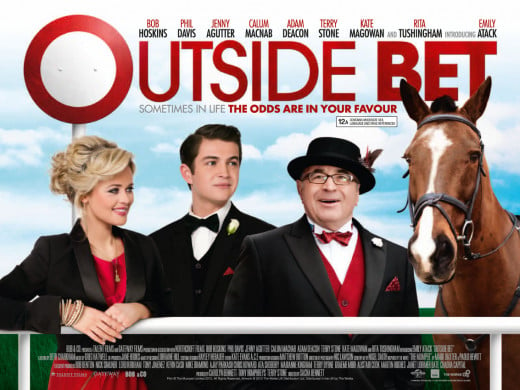
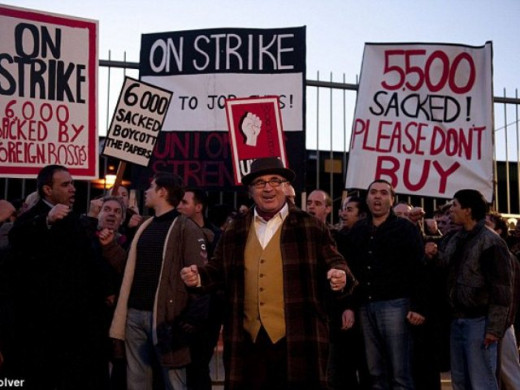
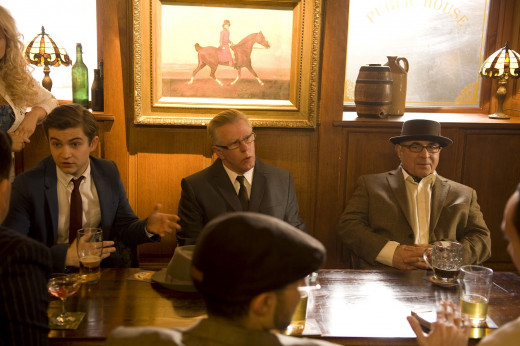
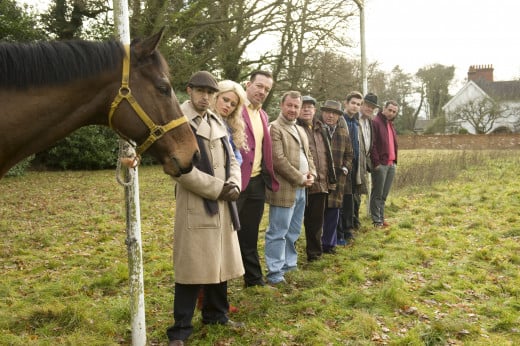
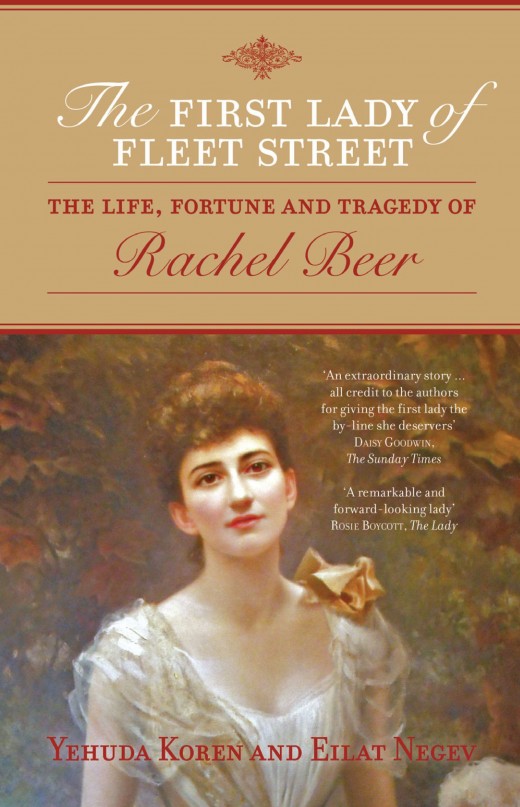
'Read all abaht it!
An extraordinary story of an extraordinary woman of her time, Rachel Beer. Whatever I might write here is superfluous. Read it for yourself and see just how different she was from the rest of the 'herd'
So unlike father - Sir Keith enjoyed greater popularity than his son Rupert
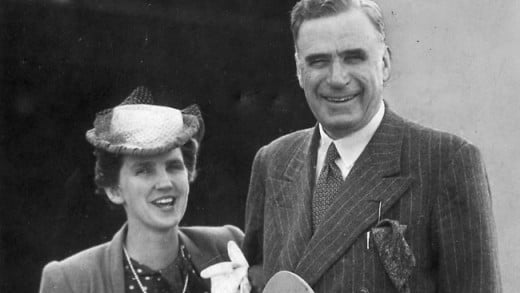
Fact: (added to the Hub 4th May, 2012)
Rupert Murdoch is no Alan Sugar. He had a good university education with an assured seat on the board thanks to the achievements of his father.
Sir Keith Murdoch (1885-1952) was an Austrialian journalist, a high flyer with a talent for spotting a story. As a writer for the Sydney Sun he obtained permission to visit Anzac Cove in the Gallipoli camapaign in September, 1915. A private letter sent to David lloyd George on the conduct of the campaign was published, and friendship with Lord Northcliffe assured his upward progress. In 1921 he was appointed Chief Editor of the Melbourne Herald. From 1926 he took over ailing Australian newspapers and in 1930 Murdoch's papers campaigned against the Labour Government of James Scullin, in support of the breakaway ex-Labour politician Joseph Lyons' Prime Ministerial campaign. In June 1940 Keith Murdoch was appointed Director General of Information for Australia, obtaining government authority to oblige newspapers to print government edicts as and when he felt they were needed, but had to resign the post when newspaper men compared him to Dr Joseph Goebbels. In 1942 he became Chairman of the Herald Group, and in 1944 established the Herald Chair of Fine Arts. Due to cancer spreading he gave up most of his work except on The Herald in 1949. He made a deal with the Herald Board to buy control of the adelaide papers in return for first option on any sale of his Brisbane newspaper shares. Sir Keith Murdoch died early on October 5th, 1952, leaving an estate of just over £410,000, most of which was used to pay off mortgages and death duties. However, the family kept control of News Limited, publishers of the Adelaide News.
© 2012 Alan R Lancaster

